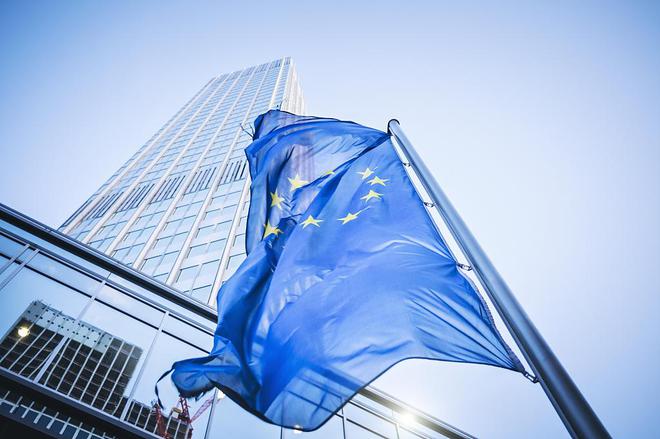
Amid the ever-changing global economic situation, the news that the European Central Bank will continuously cut interest rates until the first half of 2025 is like a huge stone thrown into a calm lake, creating ripples. This major decision will undoubtedly have a profound impact on the European and even the global economy.
This measure by the European Central Bank is not accidental. In recent years, the European economy has faced many challenges. On one hand, the global trade tensions are continuously escalating, bringing huge pressure to Europe's export-oriented economy. The uncertainty caused by trade frictions has led to a decrease in corporate investment willingness and insufficient economic growth momentum. On the other hand, the internal structural problems in Europe are also gradually emerging. High debt levels in some countries, an aging society, and slow growth in labor productivity have restricted the sustainable development of the economy.
In this context, the European Central Bank has decided to continuously cut interest rates to stimulate economic growth and reduce financing costs, thereby promoting corporate investment and consumption. Interest rate cuts will reduce borrowing costs, making it easier for enterprises to obtain funds for activities such as expanding production and technological innovation. For consumers, lower interest rates may also prompt them to increase consumption, especially in large consumption areas such as buying houses and cars.
From the data perspective, the European economy is indeed facing certain difficulties at present. Since 2024, the economic growth rate in Europe has significantly slowed down. According to the latest statistical data, the GDP growth rates of major European economies are all lower than expected. For example, as one of the largest economies in Europe, Germany's economic growth rate in the first half of 2024 was only 0.1%, far below market expectations. France's economic growth is also facing pressure. Although the Paris Olympics has brought certain positive effects, the overall economic growth is still relatively weak. Although the inflation rate in Europe has decreased, it is still at a relatively high level. High inflation not only erodes residents' purchasing power but also brings cost pressure to enterprises' production and operation. The European Central Bank hopes to further reduce the inflation rate and stabilize price levels through interest rate cuts.
However, continuous interest rate cuts are not without risks. On one hand, a low interest rate environment may lead to the formation of asset price bubbles. In the past few years, the European real estate market has shown signs of overheating. If interest rates continue to decline, it may further push up housing prices and increase financial risks. On the other hand, low interest rates may also have a negative impact on the profitability of banks. One of the main sources of income for banks is interest margin income. Interest rate cuts will narrow the interest margin and thus reduce the profits of banks.
To address these risks, the European Central Bank needs to take a series of measures. Firstly, strengthen supervision over the financial market to prevent the formation of asset price bubbles. Secondly, encourage banks to carry out business innovation and improve profitability. For example, banks can increase income sources by developing intermediary businesses and expanding overseas markets. In addition, European governments also need to adopt active fiscal policies and cooperate with monetary policies to jointly promote economic growth.
In today's era of global economic integration, the interest rate cut European Central Bank decision of the will also have an important impact on the global economy. On one hand, a low interest rate environment may attract international capital to flow into Europe, thereby putting pressure on the currency exchange rates of other countries. On the other hand, as one of the important economies in the world, the slowdown in Europe's economic growth will also have a negative impact on global trade and economic growth.
For other countries, it is necessary to closely monitor the policy trends of the European Central Bank and formulate corresponding policy measures according to their own economic situations. For example, some emerging economies may need to strengthen capital controls to prevent large-scale inflows of international capital from impacting their domestic financial markets. At the same time, countries can also strengthen international cooperation to jointly address the challenges facing the global economy and contribute to the sustainable development of the world economy.
The decision of the European Central Bank to continuously cut interest rates until the first half of 2025 is an important choice made under the current complex economic situation. This measure has both positive aspects and certain risks. In the coming period, the European Central Bank needs to closely monitor changes in the economic situation and flexibly adjust monetary policies to achieve stable economic growth and stable prices. At the same time, countries around the world also need to strengthen cooperation to jointly address the challenges facing the global economy and contribute to the sustainable development of the world economy.

According to a recent report by Rich Asplund, a columnist for Barchart, the global sugar market is currently experiencing a complex and profound supply-demand game.
According to a recent report by Rich Asplund, a columnist f…
On January 13th local time, the three major US stock indice…
Recently, the 2026 edition of the MIT Technology Review lis…
On January 15, 2026, the US military announced the seizure …
At the 2026 J.P. Morgan Healthcare Conference, a joint anno…
For much of 2025, the market was rethinking whether the dol…